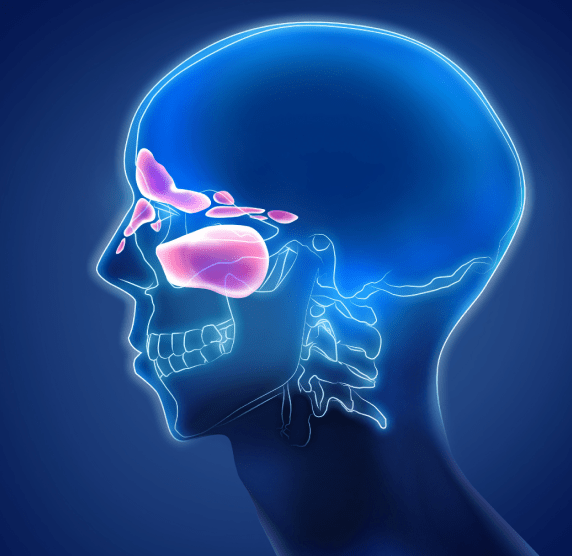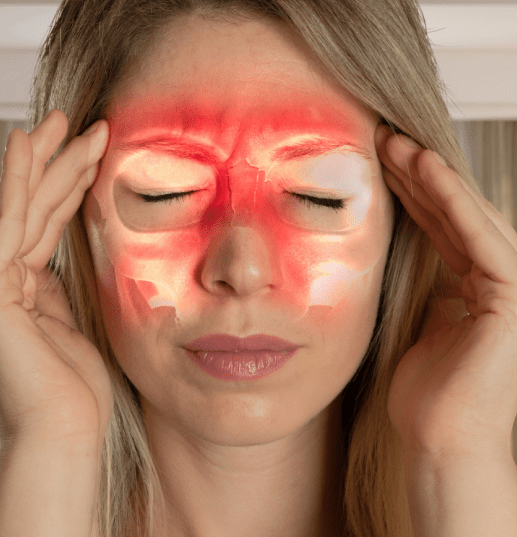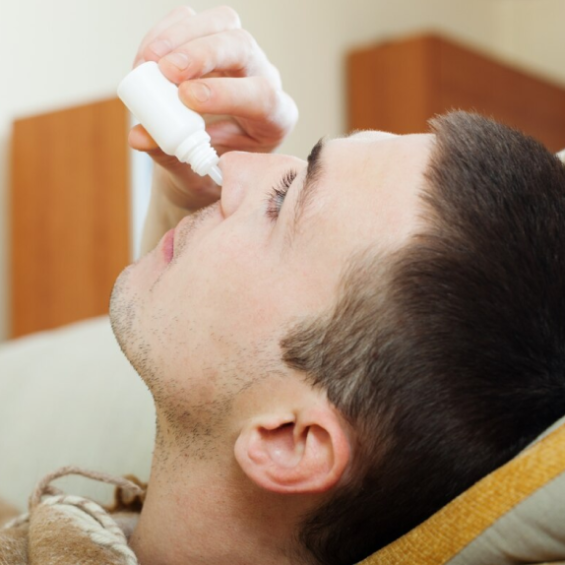Definition
Sinus headaches are a type of headache characterized by a deep, throbbing pain in the forehead, cheeks, or the bridge of the nose. These headaches are often associated with sinusitis, an inflammation or infection of the sinus cavities, and can be debilitating.

Causes of Sinus Headaches
Viral Infections: Common colds and respiratory infections can lead to sinusitis and subsequent sinus headaches.
Bacterial Infections: Secondary bacterial infections following a viral illness or due to other factors can cause sinusitis.
Allergies: Allergic reactions to pollen, dust, mold, or other allergens can trigger sinusitis and associated headaches.
Nasal Polyps: Benign growths in the nasal passages can obstruct sinus drainage, leading to infection and headaches.
Structural Issues: Deviated septum or other structural abnormalities can contribute to sinus problems
Symptoms of Sinus Headaches
Sinus headaches are typically accompanied by a range of symptoms, which may include:
Pain and Pressure: A deep, aching pain in the forehead, cheeks, or around the eyes.
Congestion: Nasal congestion and stuffiness.
Facial Tenderness: Sensitive or tender areas over the sinuses.
Thick Nasal Discharge: Yellow or green mucus may drain from the nose.
Reduced Sense of Smell: Diminished ability to detect odors.
Fever: In cases of bacterial sinusitis, fever may be present.
Worsening Pain with Movement: Bending over or sudden head movements can worsen the pain.

Treatment of Sinus Headaches
Effective management of sinus headaches involves addressing the underlying sinusitis and alleviating symptoms:
Decongestants: Over-the-counter or prescription decongestants can help reduce nasal congestion.
Pain Relievers: Non-prescription pain relievers like ibuprofen or acetaminophen can relieve headache pain.
Antihistamines: If allergies are a factor, antihistamines may be beneficial.
Nasal Irrigation: Using saline nasal sprays or a neti pot can clear mucus and improve sinus drainage
Prescription Medications: Antibiotics may be necessary for bacterial sinusitis. Corticosteroids can help reduce inflammation.
Surgery: In severe or recurrent cases, surgical procedures like endoscopic sinus surgery may be considered to address structural issues or chronic sinusitis.
Management and Coping
To manage and prevent sinus headaches:
Stay Hydrated: Drinking plenty of fluids helps keep mucus thin and facilitates drainage.
Humidifiers: Use humidifiers to maintain moisture levels in the air, reducing irritation.
Allergen Control: Identify and avoid allergens that trigger sinusitis.
Nasal Saline Irrigation: Regular use of saline irrigation can help maintain healthy sinuses.
Sinus Health: Attend to overall sinus health, including smoking cessation and addressing structural issues.
Consult a Specialist: If sinus headaches are chronic or severe, consult an ear, nose, and throat specialist for evaluation and treatment.
Summary
Sinus headaches are characterized by throbbing pain in the forehead, cheeks, or nasal bridge and are often associated with sinusitis. Causes include viral or bacterial infections, allergies, nasal polyps, and structural issues. Common symptoms include pain, congestion, facial tenderness, and thick nasal discharge. Treatment focuses on addressing the underlying sinusitis and managing symptoms. Management and prevention involve staying hydrated, controlling allergens, and maintaining overall sinus health. Consultation with a healthcare professional or specialist is recommended for chronic or severe sinus headaches to determine the most appropriate treatment plan.


